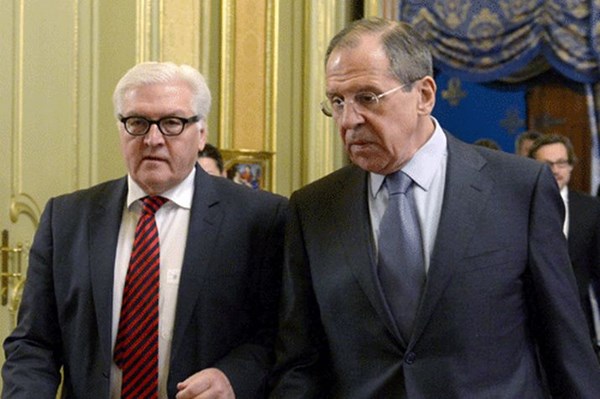German media: Steinmeier is making a mistake by seeking rapprochement with Russia
The Frankfurter Allgemeine Zeitung newspaper published a commentary by political observer Reinhard Veser, who evaluated the statements of German Foreign Minister Frank-Walter Steinmeier regarding a possible rapprochement of the West with Moscow.
“Foreign Minister Frank-Walter Steinmeier has put himself in an ambiguous position. Through a variety of statements all summer he was creating the impression that the common position of the German authorities on the Russian aggression in Ukraine is in the past. The meaning of those statements was as follows: The West should treat Russia with understanding and should once again find common ground with Moscow. These thoughts could also be seen in Steinmeier’s recent statements. In a guest column in the newspaper Frankfurter Allgemeine Zeitung, the minister wrote that he proposed to resume arms control in Europe and expressed the wish that the meetings between the “Big Eight” countries could be held again with Russia’s participation," Veser wrote.
The political observer went on to state that Steinmeier's assessment does not address the role of the Kremlin in the conflct in eastern Ukraine as much as it should.
"Though, in fact, such an interpretation is not entirely fair. The minister has still clearly indicated who is to blame for the tense situation in Europe: Russian leadership. Moscow holds the key to the return of accord with Europe, and that key is to change the Kremlin’s behavior, the minister insists. Steinmeier is doing what could be expected from a politician with the responsibility of power. He does not dwell on the description of the situation but is looking for ways to resolve the situation, which is dangerous for the whole of Europe," the political observer wrote.
"This includes a demonstration of willingness to negotiate with the Russian leadership. It makes sense to tie this abstract commitment to specific topics, such as the negotiations on the resumption of arms control in Europe. The minister obviously has no illusions about the chances for success; they are minimal. And Steinmeier is not the one to blame. But he has to blame himself for the fact that his statements are perceived with great skepticism in the West," Reinhard Veser added.
"With his statements motivated by internal debates within the Social Democratic Party (SDPG) and intended for the ordinary members of the SDPG, who have a friendly attitude towards Russia, he revitalized the spirit of the pro-Russian politics of Putin’s friend Gerhard Schröde. Then, in fairness, it must be said that it was a different time. This policy was also formulated by Steinmeier. A question then arises, how many of those policies remain in the minister’s current course? One thing is clear: it’s for an undoubted domestic victory that Steinmeier has lost so much confidence outside the country, which in the last two years he was winning in Poland, the Baltic countries and Ukraine. He thereby weakened Germany’s attempt to reduce tensions in Eastern Europe," Veser concluded.
